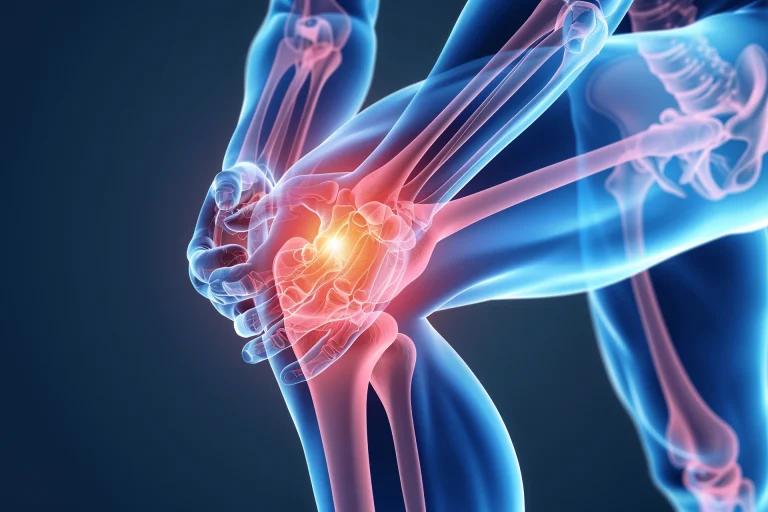
Arthritis is a condition that affects millions of people worldwide, causing pain, inflammation, and reduced quality of life. As a result, individuals with arthritis are constantly seeking effective pain relief solutions. One option that has gained significant attention in recent years is CBD, short for cannabidiol. CBD is an active compound found in the cannabis plant, known for its potential pain-relieving and anti-inflammatory properties. In this comprehensive guide, we will delve into the topic of CBD for arthritis pain, exploring the potential benefits, risks, and considerations for its use.
Understanding CBD and arthritis
What is CBD?
CBD is one of the many compounds found in the cannabis plant also known as the cannabis sativa plant. Unlike THC (tetrahydrocannabinol), another well-known compound found in cannabis, CBD does not have psychoactive effects and will not make you feel “high.” CBD is primarily extracted from hemp, a variety of cannabis that contains minimal levels of THC. It is important to note that CBD products may legally contain up to 0.3% THC, which is not enough to produce intoxicating effects.
CBD interacts with the body’s endocannabinoid system (ECS) consisting of a series of cannabinoid receptors and hormone-like compounds that control balance throughout the human body, sending signals through the central nervous system involved in regulating various physiological functions.
Should you use CBD to help with arthritis?
While clinical trials on CBD’s effectiveness in relieving arthritis symptoms are limited, some animal studies suggest that CBD has pain-relieving and anti-inflammatory properties. However, more research is needed to validate these effects in humans. Anecdotal evidence from individuals with arthritis who have tried CBD suggests that it may provide pain management, improve sleep, and reduce anxiety. It is important to understand that CBD is not a substitute for disease-modifying treatments for inflammatory arthritis.
Is CBD safe to use?
The safety of CBD is still being evaluated, and there is limited scientific evidence regarding its use in people with arthritis. However, moderate doses of CBD are generally considered safe, with no serious safety concerns reported. It is crucial to consult with your healthcare provider before trying CBD, especially if you are taking medications that may interact with it. Some medications that may interact with CBD include corticosteroids, certain antidepressants, and medications for fibromyalgia. Additionally, it is important to purchase CBD products from reputable companies that provide third-party lab testing to ensure purity, potency, and safety.
The legal status of CBD
CBD products derived from hemp are no longer classified as Schedule I drugs under the federal Controlled Substances Act. However, the legal status of CBD remains a grey area, as regulations vary at the state and federal levels. While CBD products can be legally purchased in many states and online, it is essential to stay updated on the laws and regulations in your specific location. The FDA (U.S. Food and Drug Administration) has yet to recognize CBD as a treatment for arthritis officially.
What is arthritis?
Arthritis is a complex autoimmune disease that is not a single disease but rather a group of conditions that cause joint pain and inflammation. The most common types of arthritis include osteoarthritis, rheumatoid arthritis, and psoriatic arthritis. These conditions can lead to chronic pain, joint stiffness, swelling, and reduced mobility. Managing arthritis effectively requires a multifaceted approach, including lifestyle modifications, medications, and complementary therapies.
The role of inflammation in arthritis
Inflammation plays a crucial role in the development and progression of arthritis. It is a natural response by the immune system to protect the body from harmful stimuli. However, chronic inflammation can damage the joints and contribute to the pain and disability associated with arthritis. Understanding the inflammatory process and its impact on arthritis is essential for exploring the potential benefits of CBD.
Current arthritis treatment options
Conventional treatment options for arthritis include nonsteroidal anti-inflammatory drugs (NSAIDs), disease-modifying antirheumatic drugs (DMARDs), corticosteroids, physical therapy, and surgery. While these treatments can be effective, they may also come with side effects and limitations. As a result, many individuals are turning to alternative therapies like CBD to supplement their current treatment plans.
Considerations for using CBD for arthritis pain
Consulting with your healthcare provider
Before trying CBD for arthritis pain, it is crucial to consult with a healthcare professional. They can provide personalized guidance based on your specific condition and medication regimen. Your healthcare provider can help determine if CBD is a suitable option for you and advise on potential interactions with your current medications. Regular follow-up evaluations with your healthcare provider are essential to monitor the effects of CBD and make any necessary adjustments to your treatment plan.
Finding the right CBD product
CBD products come in various formulations, including CBD oils, CBD capsules, CBD lotions, CBD creams, CBD tinctures and edibles such as CBD gummies. Each form has its advantages and disadvantages. Finding the right CBD product involves considering factors such as your preferred method of consumption, desired onset and duration of effects, and ease of use. It is also important to choose products from reputable companies that provide transparent information about their sourcing, manufacturing processes, and third-party lab testing.
Starting with a low dose
When starting CBD, it is generally recommended to begin with a low dose and gradually increase it if necessary. Experts suggest starting with a dose of 5-10 milligrams of CBD per day and assessing the effects over a few weeks. If you do not experience sufficient symptom relief, you can gradually increase the dose in small increments every week. Keeping a symptom and dose diary can help track the effects of CBD and determine the optimal dosage for your individual needs.
Quality and purity of CBD products
To ensure the quality and purity of CBD products, it is essential to buy from reputable companies that conduct third-party lab testing. Third-party lab testing verifies the potency, purity, and safety of CBD products. A certificate of analysis should be available from the company, providing detailed information about the product’s cannabinoid profile and the absence of harmful contaminants.
Potential side effects and drug interactions
While CBD is generally well-tolerated, it can cause side effects in some individuals. Common side effects include fatigue, diarrhea, changes in appetite, and dry mouth. CBD may also interact with certain medications, so it is crucial to discuss its use with your healthcare provider if you are taking any medications, particularly corticosteroids, antidepressants, and medications for fibromyalgia. Your healthcare provider can help assess potential drug interactions and adjust your treatment plan accordingly.
Conclusion
CBD has emerged as a potential option for individuals seeking pain relief from arthritis. While scientific evidence regarding its effectiveness is limited, anecdotal reports suggest that CBD may provide relief from arthritis-related symptoms such as pain, insomnia, and anxiety. However, it is important to approach CBD use with caution, consulting with your healthcare provider and considering factors such as product quality, dosage, and potential side effects. By taking these considerations into account, you can make an informed decision about whether CBD is a suitable option for managing your arthritis pain.
Sources
Medical Disclaimer
NowPatient has taken all reasonable steps to ensure that all material is factually accurate, complete, and current. However, the knowledge and experience of a qualified healthcare professional should always be sought after instead of using the information on this page. Before taking any drug, you should always speak to your doctor or another qualified healthcare provider.
The information provided here about medications is subject to change and is not meant to include all uses, precautions, warnings, directions, drug interactions, allergic reactions, or negative effects. The absence of warnings or other information for a particular medication does not imply that the medication or medication combination is appropriate for all patients or for all possible purposes.










